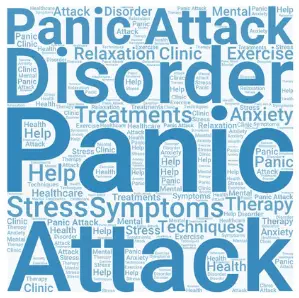Crying is a Natural Response to Panic Attacks
Crying during a panic attack is a physiological reaction to the intense stress experienced. It serves as a coping mechanism, offering temporary relief from overwhelming feelings of doom and helplessness. This response should not be seen as a sign of weakness but rather as a natural way the body handles extreme emotional distress. The act of crying releases endorphins, which can help reduce stress levels and alleviate some of the acute symptoms of a panic attack.
Emotional Stress and the Inclination to Cry
 The emotional stress triggered by a panic attack can be profound, often leading individuals to cry. This release of pent-up emotions and feelings is a way for the body to alleviate tension. Mental health experts suggest that crying during these episodes can help in releasing this built-up stress and also serves as a method to communicate distress and seek support from others.
The emotional stress triggered by a panic attack can be profound, often leading individuals to cry. This release of pent-up emotions and feelings is a way for the body to alleviate tension. Mental health experts suggest that crying during these episodes can help in releasing this built-up stress and also serves as a method to communicate distress and seek support from others.
Distinguishing Panic Attacks from Anxiety Attacks
It’s important to differentiate between panic attacks and anxiety attacks, as they elicit different responses. Panic attacks are abrupt and intense, typically occurring without clear triggers. They often lead to an immediate response, such as crying, due to their sudden nature. In contrast, anxiety attacks stem from prolonged periods of worry and are usually linked to specific situations, leading to a less immediate response in terms of crying.
Expert Perspectives on Crying During Panic Attacks
Mental health professionals, including Cynthia Catchings, have observed that crying is a typical response to the overwhelming anxiety experienced during panic attacks. Although not explicitly listed as a symptom in the Diagnostic and Statistical Manual of Mental Disorders (DSM), crying is widely reported as an emotional response to panic attacks. It reflects the body’s physiological and psychological reaction to extreme stress and acts as a dynamic release valve.
The Individual Nature of Crying in Panic Attacks
It’s crucial to recognize that individual experiences with panic attacks can vary significantly, and not everyone may respond by crying. Understanding personal reactions and how one’s body and mind cope with intense emotions and physical sensations during a panic attack is critical to effectively managing the condition.
FAQS
Can crying be a symptom of a panic attack?
Yes, crying can be a symptom of a panic attack. Some individuals may cry during a panic attack as a way to release intense emotions or as a result of feeling overwhelmed by fear.
Why do people cry during panic attacks?
People may cry during panic attacks as a way to cope with the overwhelming emotions they are experiencing. Crying can be a natural response to fear, anxiety, and stress.
Is crying during a panic attack common?
Crying during a panic attack is not uncommon, but it may vary from person to person. Some individuals may cry during every panic attack, while others may not cry at all.
Can crying worsen a panic attack?
Crying itself may not worsen a panic attack, but it can intensify the feeling of distress and contribute to a sense of being overwhelmed. It is essential to find healthy coping mechanisms to manage intense emotions during panic attacks.
Do all individuals with panic attacks cry?
No, not all individuals with panic attacks cry. Everyone experiences panic attacks differently, and crying is just one possible symptom among many others.
How can crying during panic attacks be managed?
Managing crying during panic attacks involves:
- Finding healthy coping strategies, such as deep breathing exercises.
- Mindfulness techniques.
- Seeking support from a mental health professional.
These strategies can help individuals better regulate their emotions during panic attacks.
What should I do if someone is crying during a panic attack?
If someone is crying during a panic attack, it is essential to offer support and reassurance. Encourage them to practice deep breathing exercises, remind them that panic attacks are temporary, and suggest seeking professional help if needed.
Can crying during panic attacks be prevented?
While it may not be possible to prevent crying during panic attacks completely, individuals can learn to manage their emotions better through therapy, medication, and self-care practices. These approaches can help reduce the frequency and intensity of panic attacks, including crying episodes.
Are there any long-term complications associated with crying during panic attacks?
There are no specific long-term complications directly associated with crying during panic attacks. However, if panic attacks and their symptoms persist untreated, they can negatively impact an individual’s overall mental health and quality of life. Seeking appropriate treatment is essential for managing panic attacks effectively.

